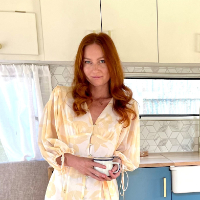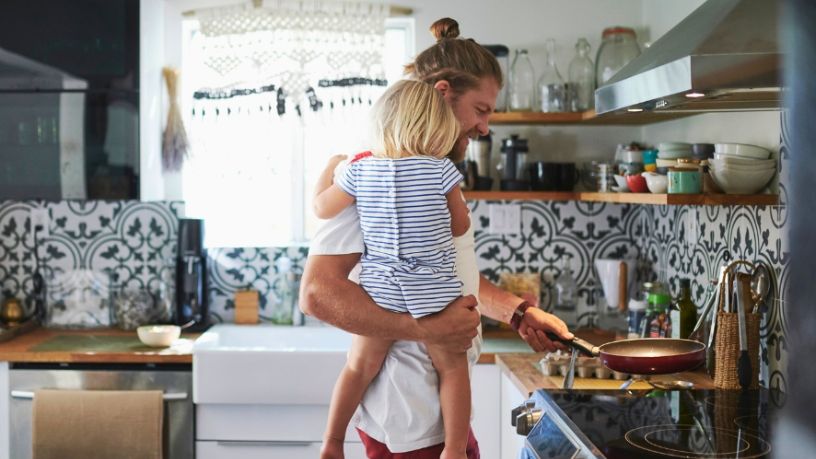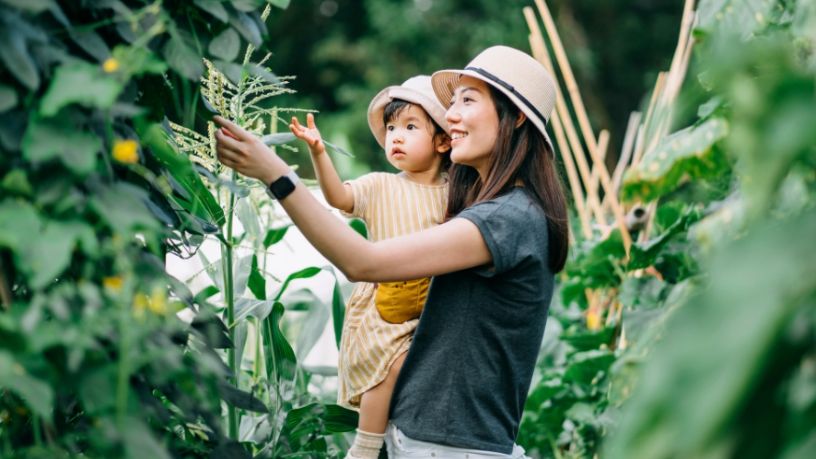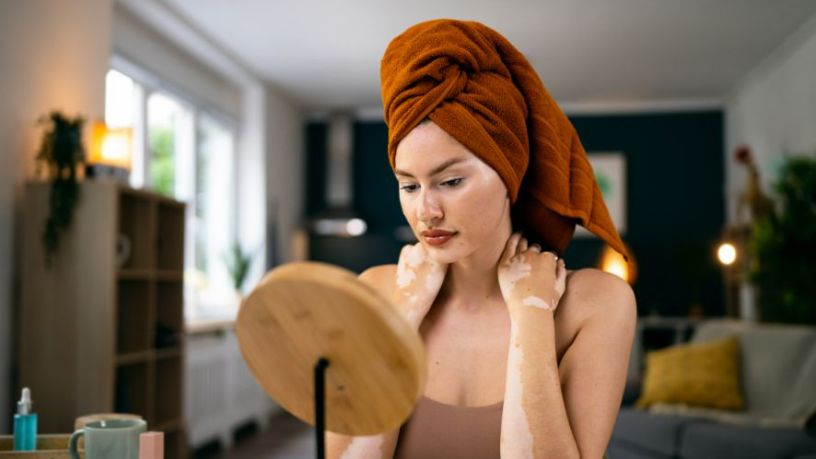Gardening and spending time in nature provides many physical and mental health benefits.
On this page
Key takeaways
Systems such as composting can help to reduce landfill and greenhouse gases.
Growing and eating your own fruits, herbs and veggies gives you access to fresh produce, while also instilling a sense of achievement and purpose.
There’s a growing body of research that links good physical and mental health to being outside in nature. But, while a stroll on the beach or a hike in the bush is great, can we get our ‘green fix’ a little closer to home?
Experts say yes. Gardening has been shown to not only improve physical health and reduce the risk of dementia, but also to ease the symptoms of anxiety, reduce stress and improve mood.1
Better yet, growing our own food, reducing waste and landfill through systems such as composting, and encouraging wildlife all have benefits for the environment.
Here are some ways to get started on your gardening journey (green fingers not required!).
Grow an organic garden
Organic gardening is creating a garden without any synthetic products, including chemical fertilisers and pesticides.2 Growing an organic garden allows you to enjoy gardening without worrying about the impact chemicals have on wildlife, the soil, or residue left on your fruits and veggies.
Having a chemical-free oasis in the face of a climate crisis is rewarding. Plus, it can be a much-needed refuge from negative news-cycles and doom-scrolling, both of which can cause stress and the symptoms of anxiety and depression.3
If you’re just starting out with organic gardening, remember not to be hard on yourself. You never stop learning, and finding your footing in an organic garden takes time. Look online for tips on how to start or speak to your local nursery.
Garden with indigenous plants local to your area
Indigenous planting is integral to biodiversity.4
Indigenous plants are those that are both native to Australia and occur naturally in your local area. As well as giving native creatures a safe place to feed and shelter, indigenous plants are low maintenance. If you’re just starting out, these plants are the perfect choice.
Head to your local indigenous nursery to get some help. They’ll have a locally grown selection of indigenous plants that may be perfect for your garden.
Use plants that support pollinators
While you’re dreaming up your perfect garden, don’t forget to factor in the pollinators (especially bees).5
You can create a pollinator’s garden by planting diverse plant species, fruit trees and herbs. It’s important to know that using chemicals to kill weeds can harm or kill our bee colonies, so be careful about what you’re using and opt for organic or homemade when you can.
Compost your food and garden waste
Did you know that food waste doesn’t break down properly in our landfills? In fact, due to the lack of oxygen in landfills, the food scraps we throw out release harmful greenhouse gases including methane, which contributes to climate change.6
You can make a difference by composting your kitchen waste and turning food scraps into nutrient rich soil that can be used in your garden.
You can compost:
- fruit and veggie scraps
- ground coffee
- shredded paper and cardboard
- crushed eggshells
- pruning and lawn clippings.7
Be present in the garden
Gardening can be part of your mental health toolbox as something that reduces stress and brings you joy. It’s a great way to practice mindfulness and being in the present moment, something we know can benefit our mental wellbeing.8
The mental and physical benefits can be increased if you plant an edible garden. As well as ensuring you’re eating fresh produce (which benefits your body), the act of growing your own food can increase feelings of purpose and heighten self-esteem.9

At Bupa, trust is everything
Our health and wellbeing information is regularly reviewed and maintained by a team of healthcare experts, to ensure its relevancy and accuracy. Everyone's health journey is unique and health outcomes vary from person to person.
This content is not a replacement for personalised and specific medical, healthcare, or other professional advice. If you have concerns about your health, see your doctor or other health professional.
1Thompson, R. (2018). Gardening for health: a regular dose of gardening. Clinical Medicine, 18(3), 201-205.
2Sustainable Gardening Australia. (2016). Tips for starting an organic garden. Sustainable Gardening Australia.
3Huff, C. (2022). Media overload is hurting our mental health. Here are ways to manage headline stress. American Psychological Association.
4Sustainable Gardening Australia. (2019). Indigenous plants. Sustainable Gardening Australia.
5Good Living. (2017). Why bees are so important to the environment. Government of South Australia, Department for Environment and Water.
6Sustainability Victoria. (2023). Avoid food waste at home. Victoria State Government.
7Good Living. (2022). A beginner’s guide to composting. Government of South Australia, Department for Environment and Water.
8Healthdirect. (2024). Mindfulness. Healthdirect.
9Green Adelaide. (2022). 3 ways that growing your own food brings big benefits. Government of South Australia.
You might also like...
Clean beauty: What does it mean?
There are whole sections dedicated to clean beauty at some of Australia’s biggest beauty retailers. But what does ‘clean beauty’ mean, and is it worth it?
3 low tox kitchen swaps
Looking to reduce the toxins in your kitchen but not sure where to start? Discover 3 simple swaps you can make today.
Living low tox: What it is and how you can do it
Let’s talk toxins and how you can reduce them in your life.
Natural vs organic skincare: What’s the difference?
What’s the difference between ‘natural’ and ‘organic’ skincare, and are these products really better for your face and the planet?





